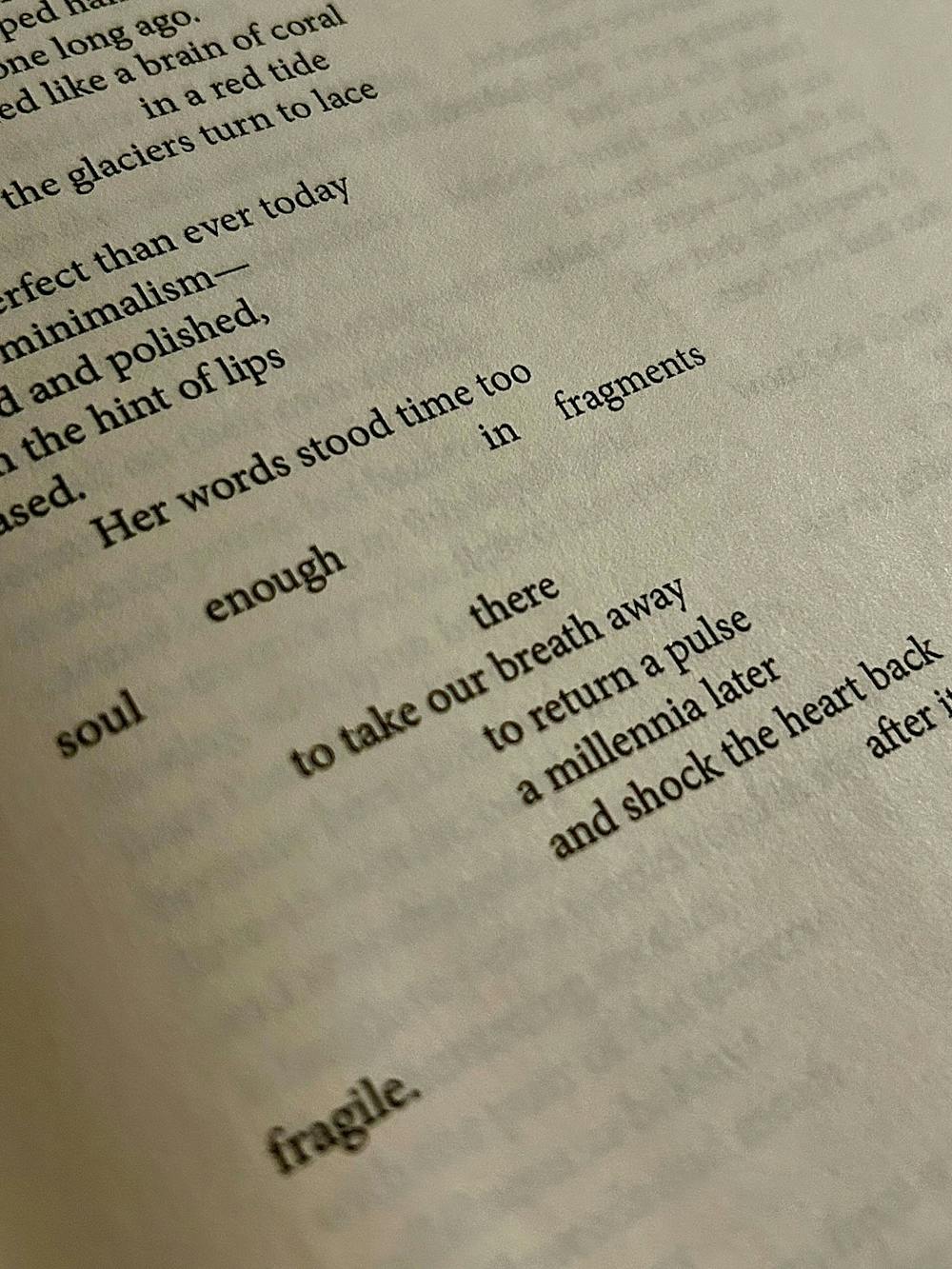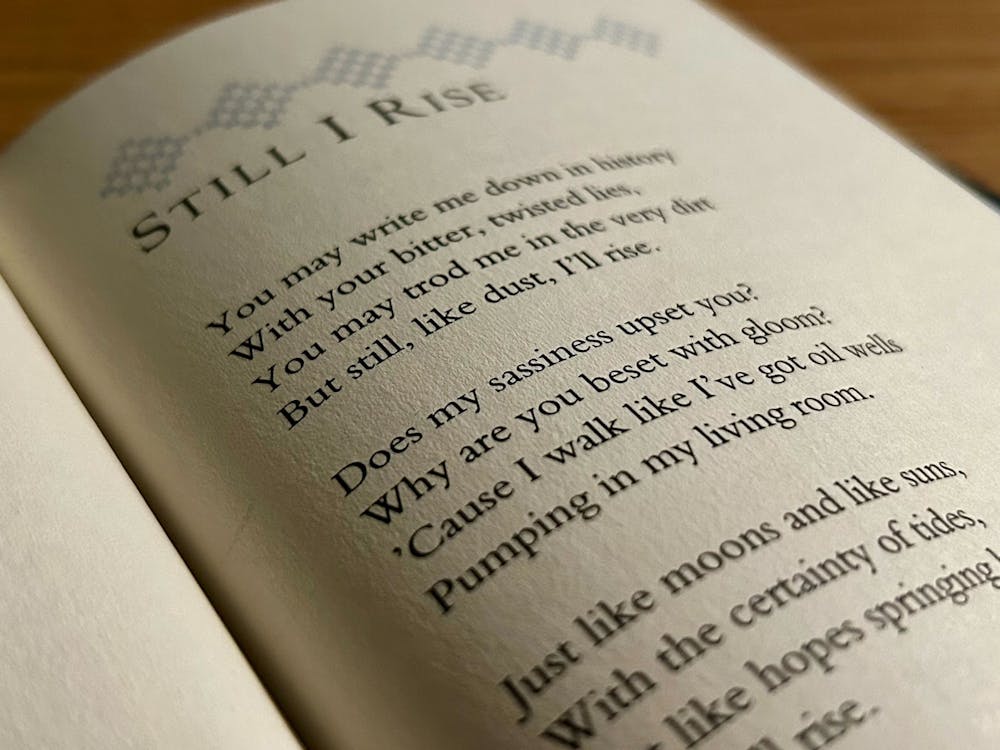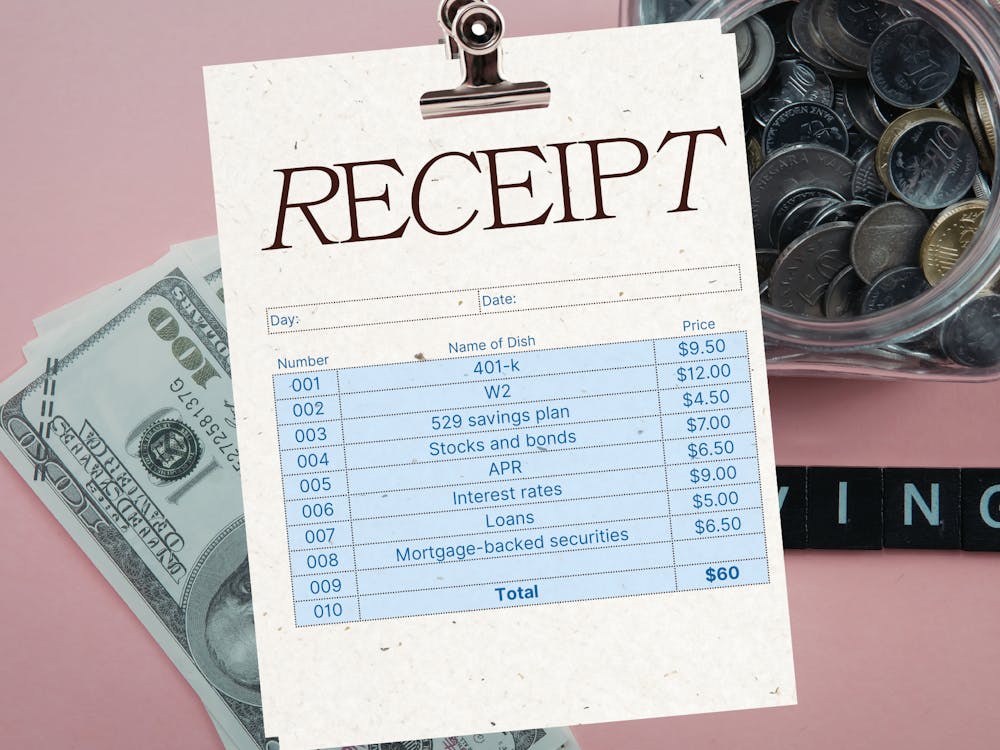I used to approach all prominent poets as untouchable monoliths of literary greatness. I pored over poems by Sylvia Plath and Pablo Neruda like their words were written with gold. But I, an aspiring poet, failed to understand that they were people too, just like you and me.
For many, poetry is a form of self-expression, and pen and paper are a chance for escape and daydreams and everything in between. Despite this, I compared my one-stanza poems to poetry legends. I treated my work as inferior to theirs.
I’ve since broken up with the notion that I need to scrap every poem I write until I come up with the perfect one, and I encourage you to do the same.
My former English classes conditioned me to approach poems as a complex specimen to be dissected. I never bothered to understand the circumstances that led to the creation of works like Sylvia Plath’s “Lady Lazarus” or Maya Angelou’s “Still I Rise.”
Instead, I waited for the few times that teachers and professors discussed the assigned poets’ personal lives inside the classroom.
During my English class this semester, when we discussed the work of Ariana Brown, which focuses on her experience of growing up as a Black Mexican-American, it struck me that poets lead lives full of good and bad experiences, just like other humans.
What distinguishes them from you and me, though, is that they put pen to paper and write out their feelings in elaborate verbiage.

And so I decided to pick up my own pen and scribble words on a seldom-used notebook.
The poem I wrote after that English class doesn’t hold a candle to my more recent poetic musings, but the important thing is that I don’t hate it.
This is a necessary distinction to make: Hating my own poem is not the same as being critical of it.
Similar to my idol Plath, almost all my poems were written out of a necessity to express myself. So based on that fact, to judge an old poem of mine is to judge my past feelings and experiences, and that’s simply wrong. I wouldn’t judge a friend for feelings they’ve written down a year or two ago, so why did I ever judge my own poetry in the first place?
This is where I tell you, reader, that everyone deserves to express themselves in any form, whether that’s through poetry or other art forms, literary or otherwise.
I implore you to let go of that voice in your head telling you that your poetry isn’t “good enough” or that you’re no poet to begin with.
Write bad poetry, even if you’ll cringe at it after you close the notebook.
Reem Alshaban is a news reporter at The Beacon. She can be reached at alshaban28@up.edu.
Have something to say about this? We’re dedicated to publishing a wide variety of viewpoints, and we’d like to hear from you. Voice your opinion in The Beacon.








